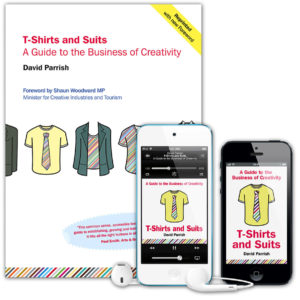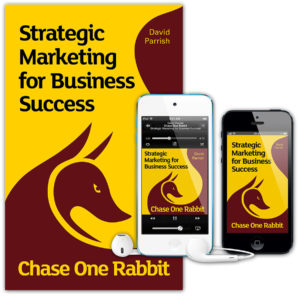Financial Management in the creative and cultural industries is all about getting the right financial result by managing your income and expenditure.
Many creative entrepreneurs tell me that finance is not their forte; they are driven by a creative passion and find financial management boring or confusing – or both. Creative people are often not primarily motivated by money, yet financial management is an essential part of any enterprise, creative or not. So an understanding of financial matters can quickly pay dividends.
There are three different ways of looking at money matters; each provides a different view of an enterprise and is useful in its own way.
Firstly we need to understand the relationship between income and expenditure over a particular period and whether income exceeds expenditure or not, resulting in a profit or a loss. This period might be retrospective, as in the case of a set of historic accounts, or a forecast of expected performance for a future period. These ‘Profit and Loss Accounts’ – or ‘Income and Expenditure Accounts’ (same thing) – tell us about the financial performance over a period.
Secondly the Cash Flow tells us exactly when money went into and out of the business bank account and is particularly useful in looking ahead at likely scenarios – the cash flow forecast. Even if a profit is forecast for a future period, cash flow might be a problem if at certain times more money is going out than coming in. Cash flow relates to the comings and goings of real cash and its management is crucial. Business failures are most often due to cash flow problems.
Thirdly, the Balance Sheet provides a ‘snapshot’ of the financial position of an enterprise, by showing the balance between its assets and its liabilities at a point in time, usually the last day of a financial year. (Note that the balance sheet is not about income and expenditure.)
Creative businesses have to prepare accounts for HM Revenue and Customs (HMRC) and for any investors or funders, but the first purpose of accounting is to enable the owners and managers to understand their enterprise properly so that they can manage it even more effectively. And to get a true financial picture, all costs need to be calculated and understood – hidden subsidies can distort the picture and lead to an inaccurate understanding of how things are going. These hidden subsidies can arise from unpaid labour and the use of external assets for business purposes. So a self-employed photographer, designer or musician whose creative enterprise is making a profit because they are using their partner’s computer, a personal mobile phone and the family car without paying for them is probably not truly profitable at all. Charging accurately for the use of these assets gives a more realistic picture of the situation (as well as a lower tax bill). Unpaid labour similarly distorts the true picture and so should be accurately quantified so as to understand the real costs of the business and therefore its profitability (or lack of it). These matters are particularly important in preparing accurate budgets for projects and charging the right prices to clients.
It pays to plan your finances. Not only is it a matter of good financial management to forecast your enterprise’s income and expenditure (and cash flow), it’s essential if you are to attract investment from other people or organisations. Any investor, from the commercial or public sector, will need to be convinced that their money will pay dividends, either in terms of financial reward or public benefit. The last thing they or you want is for the enterprise to become insolvent.
There are several ways to raise the necessary finance for creative enterprises, including personal investments from the people concerned, grant funding and equity investments from third parties such as ‘business angels’, friends or fans. Larger investments are classically provided by commercial investors but many creative enterprises have used ‘crowd-financing’ or ‘fan-financing’, ie lots of people investing small amounts. For example Jill Sobule raises money this way and veteran band Marillion raised money from fans. Hannah Rudman has written about digital fundraising and Slice the Pie enables people to invest affordable amounts in musicians and take a share of the financial rewards.
Equity financing involves selling shares in the enterprise and consequently there are repercussions for ownership and control of the business. A suitable organisational structure needs to be chosen if raising money this way is the financial strategy, ie a Company Limited by Shares rather than a Company Limited by Guarantee. See blog on Structuring your Enterprise for more details about structures.
So raising money and managing finances is connected to other issues including structure and relationship with funders or investors. It will be necessary to take advice from accountants and other professionals on some financial and legal issues. At the same time there are plenty of opportunities to use creativity and raise money in new and imaginative ways.
See article: The Overheads of your Creative Business
Financial management
There is more information about financial management in David’s books, other publications, videos and free resources.
David Parrish inspires and empowers creative entrepreneurs world-wide as an international creative industries speaker, consultant, trainer and author.
Business Adviser – Creative and Digital Industries
Creative and digital businesses grow with the help of David’s expertise in creative entrepreneurship. He shares his expertise through his speeches, training workshops, coaching and books on business growth.
David advises businesses on strategic development, marketing, leadership and growth in his capacity as a qualified and experienced business adviser and management consultant, working world-wide.
He helps clients by drawing on his own direct experience as an entrepreneur as well as his work helping hundreds of creative, digital, cultural and arts businesses around the world. His direct experience is backed up by academic qualifications and professional accreditations in business strategy, marketing and leadership. He is a Chartered Institute of Marketing ‘Chartered Marketer’. David has an MBA (with distinction). In addition, he is a Fellow of the Institute of Leadership and Management (FInstLM). He is also honoured to be a Fellow of the Royal Society of Arts.
David is a UK expert and international creative industries speaker. He has helped hundreds of businesses in more than 60 countries to achieve greater success on their own terms. This is achieved by using smart business development techniques that fit with their creativity, ambitions and values. His creative industries consulting focuses on the needs of creative industries businesses, cultural enterprises and arts organisations.
Successful creative enterprises integrate creativity and business. David’s T-Shirts and Suits® approach helps creative people (‘T-Shirts’) use smart business thinking (‘Suits’). His entertaining and inspirational speeches illustrate ways in which businesses can use creative business models and powerful business techniques to achieve greater success. His creative industries consulting with individual businesses guides them to success by combining their creative passion, strengths and goals with a winning business strategy tailored to their own needs, values and circumstances.
Creative Business Books, eBooks and Audiobooks
David has written two books and several other publications especially for creative businesses. He brings his own experience of setting up and growing businesses in the creative and cultural industries. David is actively involved in the creative and digital industries as a company director and management consultant. He also shares the learning he has gained from working with hundreds of successful creative enterprises around the world. His books are available in paperback, eBook and Audiobook formats. They have been translated into several languages and published in various countries in several continents.
What they say about David Parrish…
Here are a few examples of what people say about David Parrish. His clients worldwide say how they have benefited from David’s creative industries keynote speeches. They also recommend his business advice, training, presentations, lectures and books:
“It was a pleasure to invite David to give the keynote speech at the Third International Creative Industries Conference in Novi Sad, Serbia. His speech about ‘Creative Business in the Digital Economy’ was enlightening. It was ideal for our audience that included startups, government officials, investors and agencies from Serbia and other countries. David’s speech was also broadcast on TV to reach an even wider audience. We were delighted with the positive impact that David made on the creative industries here in Serbia.”
Tatjana Kalezic. Creative Industries Cluster of Vojvodina KVIK.
http://www.kvik.rs
“The choice to work with David was definitely the right one. In less than two days time we had crafted a cohesive short term and long term strategy that provides for desired growth, protects our IP, enables investment, and allows us to retain creative control of our technology. David’s ability to listen to your situation, to understand it, and then determine a course of action based on your specific needs and goals is rare and a makes David a joy to work with.”
– Aric Wanveer. Zero Gravity Creations LLC, Baltimore, USA
“David Parrish was a special guest of Creative Industries Summer School held in Moscow. Creative entrepreneurs from all over Russia said that David’s presentation was very inspiring, entertaining and very useful for them. His presentation “Creativity and Business: How to Succeed as a Creative Entrepreneur” was amazing and I am sure it will help develop creative entrepreneurship in Russia. David is a very bright and powerful expert.”
– Olga Kizina. Director. Creative Industries Agency. Moscow. Russia.
“Workshop participants were very impressed and inspired by David’s speech and book because he avoided using jargon, gave clear illustrations to describe what creative business is about and explained the general principles of running a creative business. He talked about some important issues, such as intellectual property, business formulas, knowing your competitors, knowing your market, and being prepared to say No.”
– HsinYi Ku. British Council, Taiwan
“David writes about creative business better than anyone I know.”
– Wayne Morris. The Creative Edge. New Zealand.
“David Parrish is a very inspirational speaker. The way he illustrates his points is excellent. He makes you laugh and instantly you start to think about your own ideas and projects.”
– Eli Folkestadaas. British-Norwegian Chamber of Commerce. Oslo, Norway.
Read more testimonials about David’s work as an international creative industries speaker, consultant, adviser, trainer and author of two books, other publications and many articles.
David’s Background, Experience and Expertise
Dave Parrish has been directly involved in the creative economy and cultural economy for more than 20 years, as an entrepreneur, manager, company director, management consultant, business adviser, coach, mentor, trainer, writer, and international creative industries speaker. For an insight into his personal background, business experience, values and his own perspective on creativity and business, read his story.


